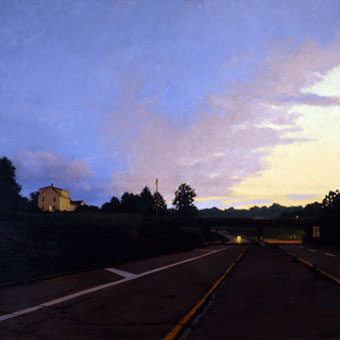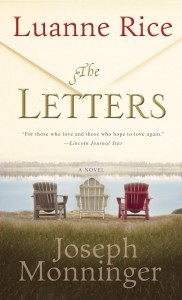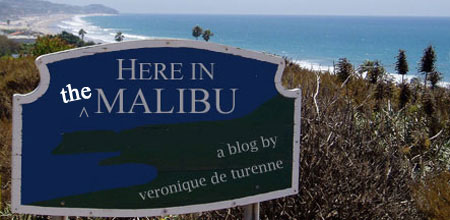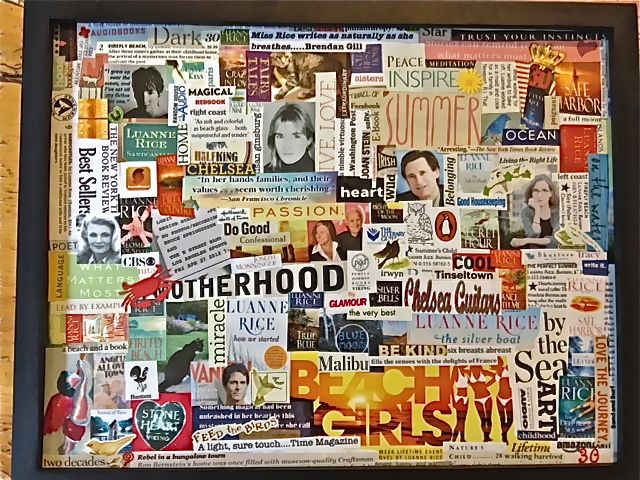 I'm so grateful to the lovely and talented Caroline Leavitt for featuring The Lemon Orchard (and me) on her blog.
The Lemon Orchard comes out July 2, but is available for pre-order now.
Here's what I can't wait to read: Caroline's new novel, Is This Tomorrow, a May Indie Next Pick.
And here's Caroline in a baseball cap:
I'm so grateful to the lovely and talented Caroline Leavitt for featuring The Lemon Orchard (and me) on her blog.
The Lemon Orchard comes out July 2, but is available for pre-order now.
Here's what I can't wait to read: Caroline's new novel, Is This Tomorrow, a May Indie Next Pick.
And here's Caroline in a baseball cap: 
To write
 To write you have to like being alone. Ideas have to flow in and out like air through cracks in the cabin wall. Physical space isn't important; the flow can happen in a tiny room. What counts is internal space. The voices you hear belong to your characters. I clear my life, days and weeks and months at a time, and I lie about it. It embarrasses me to need so much solitude. So I write this today with a sense of coming clean.
I'm a terrible one for canceling. I make plans because I love the people I make them with. But sometimes even a single appointment can worry me, or shift my focus to that day, that moment on the calendar, and I wind up saying I'm sorry, I won't be able to.
This might be extreme. Some writers might need groups or gatherings or just plain old daily contact more than I do. I need solitude. When I wake up in the morning I get to my writing without speaking a word. Talking before work shifts my focus away. It's not that what I'm writing is important, or beautiful, or noteworthy--it's just what I do. The words are important to me, maybe no one else. I tell stories because if I didn't I would stop breathing.
To write you have to like being alone. Ideas have to flow in and out like air through cracks in the cabin wall. Physical space isn't important; the flow can happen in a tiny room. What counts is internal space. The voices you hear belong to your characters. I clear my life, days and weeks and months at a time, and I lie about it. It embarrasses me to need so much solitude. So I write this today with a sense of coming clean.
I'm a terrible one for canceling. I make plans because I love the people I make them with. But sometimes even a single appointment can worry me, or shift my focus to that day, that moment on the calendar, and I wind up saying I'm sorry, I won't be able to.
This might be extreme. Some writers might need groups or gatherings or just plain old daily contact more than I do. I need solitude. When I wake up in the morning I get to my writing without speaking a word. Talking before work shifts my focus away. It's not that what I'm writing is important, or beautiful, or noteworthy--it's just what I do. The words are important to me, maybe no one else. I tell stories because if I didn't I would stop breathing.
One can never be alone enough to write -- Susan Sontag
Writing, at its best, is a lonely life. Organizations for writers palliate the writer’s loneliness but I doubt if they improve his writing. He grows in public stature as he sheds his loneliness and often his work deteriorates. For he does his work alone and if he is a good enough writer he must face eternity, or the lack of it, each day -- Ernest Hemingway, 1954 Nobel Prize acceptance speech
The computer makes writing both easier and harder. It makes revision easier but it's a portal to the Internet which is a distraction. The internet has pluses and minuses. When I first discovered it I was distracted by it all the time. Email, constant contact--both wonderful and destructive, like the best addictions. Facebook provides the sense of a social life; Pinterest seems to me to be intuitive and wordless communication, a way to say who you are, or at least who you are at the moment of pinning a picture or poem; Twitter is immediate like speed or sugar; a comic artist introduced me to Tumblr, and I think I like the feeling of it. But let's face it, the Internet is hell on writing. My father, who sold and repaired Olympia typewriters, gave me an Olympia SM 9 when I was in school. I'm glad they still make ribbons for it. I've stocked up in case they stop. I think the sound of the keys comforts me; I know the cats like it. They sit close, as if the typewriter is a hearth. Most of the time I still write on my computer and sometimes on those nights I dream I am typing. Either way the stories get told. Life is writing and writing is life.
Road Odyssey
Here's a fascinating essay by Vanessa Veselka: The Lack of Female Road Narratives and Why it Matters.
I thank my writing pal Joe Monninger for sharing it with me and therefore sending me on a remembrance-of-road-odysseys-past. I went through a hitchhiking phase in my teens, and I sometimes have nightmares of a couple specific close calls. One happened somewhere between Old Lyme CT and Hightstown NJ; it was early October, after a summer at the beach, and I missed one of my beach friends so much I decided to hitch down to visit him in boarding school.
In this space I normally write about the nature of summer friendships, the depth of love for my beach friends, but Vanessa's essay takes me to a different place, to the reality of what happened on the road. There I was--17, maybe?--standing thumb-out on an I-95 entrance ramp, so convinced of my own invincibility that I climbed into the cab of an 18-wheeler. I can't picture the driver, but I can see that truck--red cab littered with fast food wrappers and a dark curtain behind the seats. "Check it out back there," he said. "It's where I sleep." That was the first moment my stomach flipped.
I felt brave, resourceful. That made me reckless, but I only know that now, from the distance of many years. If I think of my nieces doing what I did, I'd lose it. Yet even after that ride in the big rig--and the driver's innuendo and invitation into the back and my opening the door and jumping out at a toll booth--I kept hitchhiking. I got to Hightstown and later made my way back home. When my younger sisters were visiting one of their boyfriends in Warren VT, I hitched north through thickly falling snow to meet them.
Right after our father died my sisters started hitching with me--great older sister, wasn't I? The the three of us were heading back to Old Lyme from Newport RI and got picked up on Route 138 by some creep in a rattletrap who told us he had beagle puppies at home and would we like to see them? We scrambled out at the next exit, climbed the ledge that bounded the ramp, and walked for miles along the crest until we got tired and called our mother to pick us up.
Nothing disastrous happened, except perhaps to our psyches. Stepping so close to the edge, courting danger, has a serious half-life. You might not be conscious of it, but the what-ifs visit your dreams. When I was young I was searching for something--I'd push myself to do things that must have scared me at some level--when I think of them now I marvel that I survived, thrived, and wrote about them in short stories and novels. I feel guilty for taking my sisters on that part of my own strange journey, but back then we were so inseparable it would have been unthinkable to leave them out.
Come to think of it, my new novel, The Lemon Orchard, is about journeys. Traveling far from what is comfortable to find something you're not even sure you need... Maybe that's just life; it's certainly been my life.
[Image: The Highwayman by Linden Frederick]
WNYC link
here is a link to the essay about the newtown school shootings that i wrote and then read on WNYC.
that i wrote and then read on WNYC.
The Lemon Orchard
From bestselling author Luanne Rice—The Lemon Orchard is a captivating and sexy novel of love, both enduring and unexpected.
Amazon • Barnes & Noble • Books-a-Million • IndieBound • Walmart
Read MoreLittle Night
Amazon • Apple • Barnes & Noble • IndieBound
In Little Night Clare Burke’s life took a devastating turn when she tried to protect her sister, Anne, from an abusive and controlling husband and ended up serving prison time for assault. The verdict largely hinged on Anne’s defense of her spouse—all lies—and the sisters have been estranged ever since. Nearly twenty years later, Clare is living a quiet life in Manhattan as an urban birder and nature blogger, when her niece, Grit, turns up on her doorstep.
Read Morenewtown
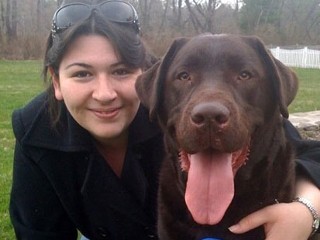 [My essay about the Newtown school shootings on WNYC]
[My essay about the Newtown school shootings on WNYC]
from the minute i heard about the shootings at sandy hook elementary school in newtown ct, a small and beautiful town in one of the prettiest parts of beautiful connecticut where terrible things aren't supposed to happen, i've been thinking about the children and teachers who were murdered and their families.
the pictures of the children break your heart. smiling, happy, talented--a video of one little girl playing the piano and singing.
one of their teachers, rachel d'avino (shown in the photo above), attended the university of st. joseph in west hartford connecticut. i learned this when i called my favorite teacher, laurette laramie, just to hear her voice, and to let her know what she means to me. laurette and my mother, lucille arrigan rice, also attended st. joe's and became teachers. the devotion my mother and laurette had/have for their students has always inspired me. once in 1978 or so a student brought a handgun into my mother's class and drew it on her and the class and she talked him into not shooting anyone, into putting the gun away, into letting her take him to the guidance counselor.
that story of my mother's was just a story--it wasn't headlines, it happened pre-lockdowns, pre-metal detectors. my mother's life was threatened, but she just kept going, caring about her students, getting them help when she could, directing them to the school psychologist because she believed their actions came from inner pain.
i feel devastated to learn of rachel's death. i didn't know this bright and dear young woman, but i feel the st. joe's connection. i'm the daughter of a teacher, and i think teachers are our everyday saints. i know laurette is one, i know my mother was, my friends joe monninger and doreen dedrick are, and i know that the teachers murdered in newtown are: rachel d'avino, dawn hochsprung (principal), anne marie murphy, lauren rousseau, mary sherlach, and victoria soto.
tonight i spoke with my friend sgt. rob derry of the connecticut state police to ask him about the first responders (the "good guys" some of the teachers spoke of)--who had to deal with the trauma of what they saw. he told me that right now there are two state troopers assigned to each newtown family who lost a child, and tomorrow there will be a large law enforcement presence at all connecticut schools. my grandfather was a hartford police detective. i'm in awe and gratitude of the people who devote their lives to public service.
to quote my sister maureen rice onorato: "i've always been so amazed by people who work in schools, who help children every day, children and their parents...every day out there looking out for them." we think of our mother, how much she cared...every day, all through the years. she taught children who had children of their own, and she really helped them know they could go on to better lives. she would come home and talk about her kids, and their lives, and we could feel her love for them.
thank you, love, and love, and more love. oh rachel.
The Lemon Orchard
 i am thrilled to give you a first look at the cover of my 2013 novel--THE LEMON ORCHARD. it will come out on July 2, but you can pre-order now if you like. it's never too soon to dream about summer reading!
i am thrilled to give you a first look at the cover of my 2013 novel--THE LEMON ORCHARD. it will come out on July 2, but you can pre-order now if you like. it's never too soon to dream about summer reading!
Very thankful to my librarian friends for this lovely mention of THE LEMON ORCHARD in Library Journal: House-sitting for her aunt and uncle in Malibu, with only her dog for company, Julia seeks solitude so that she can quietly mourn her daughter's death. Then she befriends Roberto,who tends the nearby lemon orchard and has sorrows of his own: his daughter has disappeared, but he has yet to give up hope. Classic Rice and doubtless another best seller.
Discussing Little Night: A Conversation with Luanne Rice and Ceri Radford
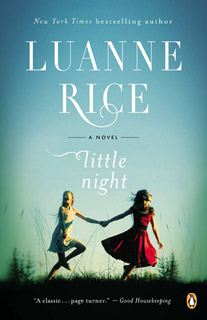 LITTLE NIGHT--Rice’s milestone thirtieth novel--is a riveting story about women and the primal, tangled family ties that bind them together. Amazon • Barnes & Noble • IndieBound • Apple
LITTLE NIGHT--Rice’s milestone thirtieth novel--is a riveting story about women and the primal, tangled family ties that bind them together. Amazon • Barnes & Noble • IndieBound • Apple
Q. What inspired you to write this novel?
I wanted to write about the way a family can look great, “normal,” from the outside, when abuse is taking place behind closed doors. Also, write about how abuse, no matter who it’s directed at, affects the entire family.
Q. You recently wrote a piece for the Huffington Post about your own experiences in an abusive marriage. How did your marriage compare with Anne’s? How did you get away?
One difference is that I didn’t have children. I received the whole brunt, and although he didn’t hit me, the psychological and emotional toll was high. Like Anne, I kept the abuse secret. I became more and more isolated from my friends and family. There was a moment when I saw things clearly. I imagined what my mother would say if she was still alive, how she would help me get away from him. So I used that strength and got away myself.
Q. In that piece, you mentioned being angry with a friend for seeing through the veil of secrecy. What advice would you give to those—a friend or family member—who want to help a victim of abuse? Should they expect to be met with anger?
A hallmark of being in an abusive relationship is denial. That’s how you survive. He’s telling you it’s all your fault, if only you’d be nicer, more understanding, less suspicious, more patient, things would be better, and he wouldn’t have to get so mad. So you twist into a pretzel, trying to set things right. Part of you hates yourself for this behavior, and part of you is hoping that this time it will work. How you react to a friend’s concern depends on the day. If you’re beaten down and in a “had enough” mode, you might listen and even open up. But because life with an abuser is like a kaleidoscope, ever shifting, when the picture changes, so does your hope and ability to see straight. So as a friend or family member, I would say be honest but be prepared for a negative reaction—until she’s really ready to hear you. And even then, she might hear for that moment and then pull back and retrench and believe him when he tells her you’re putting ideas in her head, you’ve never liked him anyway, that she’s disloyal and can’t keep her mouth shut.
Q. How did you go about putting your life, and yourself, back together again?
I think the biggest part is learning to be kind to yourself, recognizing that you don’t have to put someone else’s needs first, starting to focus on taking care of yourself. So much energy was put into trying to placate the abuser, there were huge gaps in self–care. You have to relearn—or learn—how to nurture yourself to the point of reminding yourself that you’re hungry, tired, it’s time to eat, sleep.
I wrote novels, and I surrounded myself with people who loved me. People I’d driven away over time came back to me, and no one said, “I told you so.”
Also I attended a support group called Domestic Violence Valley Shore Services. It was led by two strong, wonderful women. We’d meet on Thursday night, and by sharing our stories and tears, we healed. A group of united, supportive women is never to be underestimated.
Q. Many of the characters find solace in nature. You also blog about nature and, specifically, birds. How would you describe your relationship to nature?
I think I have a character in another novel say, “Nature is in my nature.” It’s true, it’s in all of ours. My sister Maureen has always loved the poem “Lines Written a Few Miles Aabove Tintern Abbey” by William Wordsworth, and we often quote the line, “Nature never did betray the heart that loved her.” From the youngest age I can remember I sought nature to soothe and inspire me. My father was a navigator during the war, so he’d take us on night walks and show us how to identify constellations and find our way home. My mother painted and taught us that the beach was not only for walks and fun, but, with her easel set up in the marsh, a deep and endless source of inspiration. I love getting lost in nature—not literally—but in the sense of forgetting everything but the feeling of wind in my hair and the call of a pine warbler high in the canopy of trees in Central Park’s Ramble.
Q. This is your thirtieth novel. How would you say your books have changed? How have changes in your life affected your writing?
My first novel was about sisters and family, and so is my thirtieth. I am more interested than ever in how families work—how we love each other, break up, stay together, lose each other, hold on through the worst storms. Life has taught me a lot in thirty years. Both my parents died after long illnesses. I’ve been married and divorced . . . .more than once. There’s been much love, heartbreak, and love again. A friend was murdered. There have been family estrangements. I stopped drinking. I experienced domestic violence and found strength I never knew I had. After living in New York City most of my adult life, I’ve begun spending most of my time in Southern California. I’ve been seeing the same wise, compassionate, wonderful therapist since before writing my first novel. That’s a lifetime. To have her support and perspective is invaluable in ways I can’t begin to calculate. I fly home to see her or we talk on the phone. She once remarked that my novels seem prescient; my characters would have wild experiences, and a year after publication, my life would echo theirs. It’s fascinating, the writer’s unconscious. My characters learned the lessons I needed to learn before I was actually ready. So in that way, my characters pave my way through life.
Q. What were some of the particular challenges that writing this novel presented?
This novel flowed from my fingertips. It’s full of emotion, the horror of losing a relationship with someone you love as much as yourself, and the tentative—then growing—joy of meeting a niece you never thought you’d get to know. Writing about birds and birding in Central Park gave me the chance to share one of my favorite parts of New York City. Many people don’t realize how wild the park is, one of the best places to observe migratory birds in the world.
Q. Would you argue that Anne should be held accountable for the actions that helped her escape from her husband?
I am very involved with the Domestic Violence Clinic at Georgetown University Law Center and am so proud of the work done by Professor Deborah Epstein and her students do on behalf of abused families. Anne’s actions will obviously provoke debate, but I imagine Clare immediately contacting an attorney such as Deborah or one of the Georgetown grads, finding a strong advocate who’ll fight for Anne.
Q. What do you hope readers will take away from Little Night? Did writing it teach you anything unexpected?
I hope readers will enjoy reading about the complications and secrets of a family. Love isn’t always straightforward. I also hope that a reader might recognize herself or someone she loves and find a way to start talking about what’s going on, the first step in getting help.
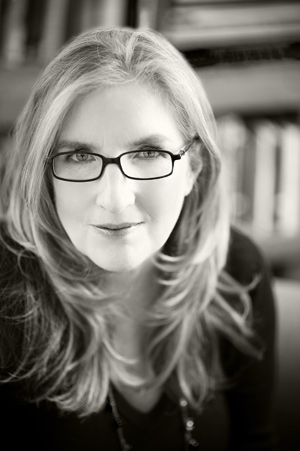 Q. What can we look forward to in your next novel?
Q. What can we look forward to in your next novel?
Love between two people from different worlds, united by the knowledge of how it feels to lose a daughter.
(Photo by Adrian Kinloch)
Buy the Book
Amazon • Barnes & Noble • IndieBound • Apple
The Geometry of Sisters
In the Geometry of Sisters, New York Times bestselling author Luanne Rice explores the complex emotional equations of love and loyalty that hold together three pairs of remarkable sisters, in an unforgettable story of loss, redemption, and forgiveness.
Read MoreThe Letters
Amazon • Apple • Barnes & Noble • Indiebound
“At once humorous and heart-rending . . . The evocative style of Luanne Rice meshes splendidly with Joseph Monninger’s in a moving collaboration [that] brilliantly illuminates the precious value of relationships.”—Wichita Falls Times Record News“For those who love and those who hope to love again.”
—Lincoln Journal Star
Read Moredream country news
 exciting dream country news in today's variety ...
exciting dream country news in today's variety ...
the letters! (a novel)
Time alone, a fresh piece of stationery, the right pen, the chance to think deeply and let feelings flow. Before I wrote novels, I wrote letters. To friends, family, people I love, people I wanted to know better. Letters turn me inside out. I’ve written letters that are truer than true. I’ve told secrets in letters. I’ve mailed letters filled with emotions so raw, I’ve wanted to dive into the mailbox to get them back.
The Letters, a novel written with one of my oldest and dearest friends, Joe Monninger, is out in paperback on August 28th. It’s filled with real-live letters between characters we created. Writing them startled and thrilled me. I can’t wait for you to read them.
Here is more about our friendship and writing process:
JOE AND ME
We met in 1980 at a café on Thayer Street. I’d answered his ad in the Providence Journal. He was a professional writer and for a fee would critique work. I was burning to be published. He was married to a woman in the Brown writing program. I’d been married for two months to a just-graduated lawyer. We were all so young.
His name is Joe Monninger, and sitting at Penguins, he read my stuff. I gave him a short story about three sisters whose father caroused with ladies of the town. He showed me a story about a boy fishing with his dad, getting the fishhook caught in his palm. His dad took it out, and the boy didn’t cry.
Instead of charging a fee, Joe invited my husband and me to dinner. He and his wife lived on Transit Street, the top floor of a three-family house, under the eaves. Bookcases lined the crooked stairs. Joe’s office was on the landing, dark and cozy, no window. His wife covered her typewriter with a pair of his boxer shorts. She made boneless chicken breasts, bought from the chicken man who drove around Fox Point playing “La Cucaracha” on his horn, and she pounded them flat on the kitchen floor between sheets of wax paper with an iron skillet while we watched.
We had dinner often. We drank scotch and told stories about our families and the dark side of nature. Joe and I loved shark stories, and collected them. We’d act out skits, our own form of improv. “Be a couple at the prom,” I’d say, and Joe and his would shyly dance. “Be Mim at the gift store,” they’d say, and I’d act out my grandmother being outraged at the price of a ceramic eggplant.
After dinner, they’d walk us down to the street. Passing the bookcases, they’d grab volumes, press them into our hands. Many of those books were biographies or collected letters: Carson McCullers, Virginia Woolf, Maxwell Perkins, Hemingway. I’d take the books home and get lost in writing lives.
Fast forward: time went by, and our first marriages ended. Joe and I remained friends along the way. We wrote to each other, knowing how important our connection was: we had witnessed each other’s youth. We had known each other’s first loves. We knew the sources of each other’s writing, inspiration, fishhooks.
One day we had an idea. I can’t remember whether it was his or mine. But we decided to merge two of our great loves from the early days: literary letters and acting out scenes. What if we took on personas? Became characters? We would write about people on the verge of divorce—we’d both been there. We’d incorporate nature and art. We needed names.
I became Hadley, after Hemingway’s first wife. He became Sam, because I wrote him he had to have a short, punchy name like “Joe.” Our last name is West, in honor of Tim West, a surfer from Half Moon Bay, who survived a great white attacking his board at Maverick’s one December day.
We wrote letters in character. And The Letters, our novel, took shape.
We had a son, Paul, our good, beautiful boy, who dropped out of Amherst to go teach the Inuit in an Alaska village, and who died. Our marriage couldn’t survive his death. Our desolation and grief and love and rage streamed into our letters. Hadley went to Monhegan Island off the coast of Maine, to try to quit drinking and start painting again. Sam flew to Alaska to search out the site where our boy died.
Even now, we find it hard to believe we don’t have a dead son.
Joe and I never spoke on the phone, never saw each other, not even once during the process. We never discussed or planned what would happen, how the story should unfold. The writing had its own life, the writing was all.
Life is full of mistakes and kindnesses, and what love can’t heal, fiction can.
And I love Joe. He’s my writer friend, the one who knows me best, who knows where the bodies are buried, and who tells me about sharks. We wrote The Letters. And we’ll keep writing.
grace magazine
 an interview i gave about writing, family, inspiration, LITTLE NIGHT, and life's experiences.
an interview i gave about writing, family, inspiration, LITTLE NIGHT, and life's experiences.
grace magazine is published by the new london day, one of my favorite newspapers, and i thank journalist and writer amy barry for such a sensitive interview.
Stars in the Night-Blue Sky
 The night is blue and smells of lemons. Standing outside I listen to the waves and look up at the stars. I am far away from the place I grew up and it comforts and somehow surprises me to see the familiar constellations.
"Arc to Arcturus," is one lesson my sisters and i learned. By following the curved handle of the Big Dipper, we found Arcturus, one of the brightest stars in the sky. It glows warm and orange, easy to admire with the naked eye, and part of the constellation Bootes.
The night is blue and smells of lemons. Standing outside I listen to the waves and look up at the stars. I am far away from the place I grew up and it comforts and somehow surprises me to see the familiar constellations.
"Arc to Arcturus," is one lesson my sisters and i learned. By following the curved handle of the Big Dipper, we found Arcturus, one of the brightest stars in the sky. It glows warm and orange, easy to admire with the naked eye, and part of the constellation Bootes.  What is it that makes us want to identify the stars, find out way around the sky? Does it help us know where we are on earth, not in a precise latitude/longitude way, but our place in the universe? We are all here for so short a time.
When i look at the stars I think of love. The stars tell a love story if only you spend the time to read it. This is how I want to live: at peace, guided by the stars. People far away look up and see the same celestial bodies at the same time, or hours apart. The sky brings us together, not only with the living but also the dead.
What is it that makes us want to identify the stars, find out way around the sky? Does it help us know where we are on earth, not in a precise latitude/longitude way, but our place in the universe? We are all here for so short a time.
When i look at the stars I think of love. The stars tell a love story if only you spend the time to read it. This is how I want to live: at peace, guided by the stars. People far away look up and see the same celestial bodies at the same time, or hours apart. The sky brings us together, not only with the living but also the dead.
pensive
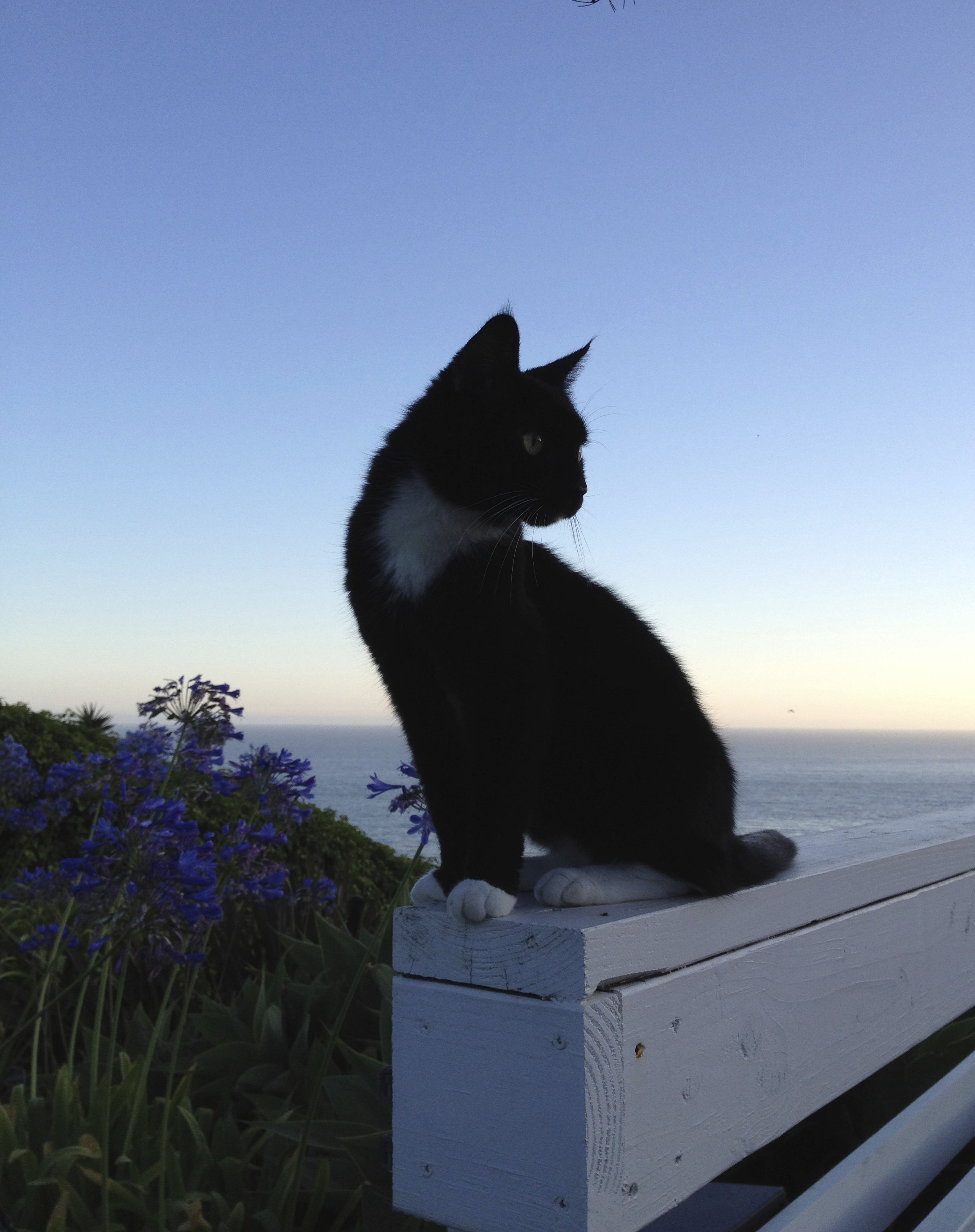 we are in a pensive mood these days.
we are in a pensive mood these days.
sometimes the marine layer rolls in and softens all the edges. after the rain, the sky glows. 
i'm writing about love in a lemon orchard, so some days i write under the lemon tree.
whether we are writing, or just hanging out on a fence rail or a tabletop, as i said, we're feeling pensive.
surely our friend the monk would understand...
my favorite blog
i came upon this blog about a year ago, and was instantly drawn in. veronique de turenne writes about malibu, nature, dogs, books, life with such heart, soul, and dry humor. she's a wonderful writer; i sent her an unabashed fan letter, and we became fast friends. we already have a tradition--having dinner on solstice nights. she introduced me to diesel, and it's become one of my favorite bookstores.check out yesterday's post, and click on the word "friend" to see why this particular post tickles me so.
but then go back, and enjoy veronique's writing and photographs. you'll feel you spent the day--or a few years, depending on how far back you read--in malibu. not the glitzy, tabloid version, but the wilderness where the santa monica mountains meet the pacific ocean...the malibu i love. incidentally, to make the circle complete, my fascination with cheyenne is shared by one of my favorite writers--joe monninger.
her an unabashed fan letter, and we became fast friends. we already have a tradition--having dinner on solstice nights. she introduced me to diesel, and it's become one of my favorite bookstores.check out yesterday's post, and click on the word "friend" to see why this particular post tickles me so.
but then go back, and enjoy veronique's writing and photographs. you'll feel you spent the day--or a few years, depending on how far back you read--in malibu. not the glitzy, tabloid version, but the wilderness where the santa monica mountains meet the pacific ocean...the malibu i love. incidentally, to make the circle complete, my fascination with cheyenne is shared by one of my favorite writers--joe monninger.
Love times 30
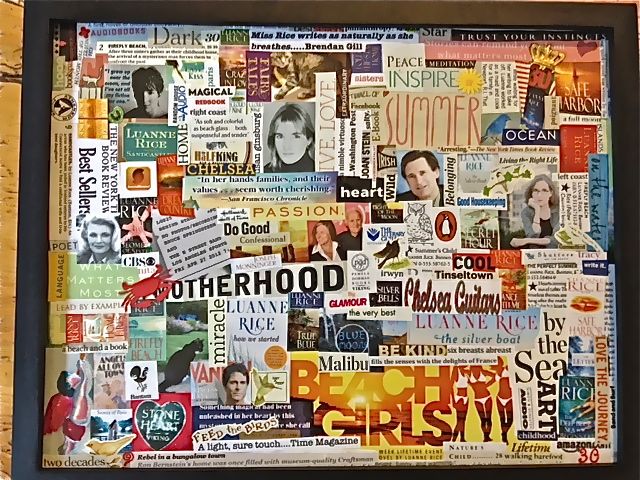 oh love...feeling it so strongly right now, along with deep gratitude. look what Andrea Cirillo, my forever literary agent and great friend, made to celebrate LITTLE NIGHT--my 30th novel. this collage contains public book stuff and private friend stuff...book jackets, stars from my tv productions, some of the funnier quotes from my novels ("we rode six breasts abreast..."), the cats, our favorite literary lunch hangout--the The Half King, joan stein, motherhood out loud, hallmark hall of fame, lifetime, the literary guild, soundhound, good housekeeping, and so much more...and she wrote: "huge congratulations on a wild, honest, excellent, crowd-pleasing, soul-searching, mind-boggling, record-making, tender, brainy, brave & true journey to book #30!" THANK YOU ANDREA! and everyone at the Jane Rotrosen Agency (all of whom signed the card), and my publishers, and all my wonderful readers.
oh love...feeling it so strongly right now, along with deep gratitude. look what Andrea Cirillo, my forever literary agent and great friend, made to celebrate LITTLE NIGHT--my 30th novel. this collage contains public book stuff and private friend stuff...book jackets, stars from my tv productions, some of the funnier quotes from my novels ("we rode six breasts abreast..."), the cats, our favorite literary lunch hangout--the The Half King, joan stein, motherhood out loud, hallmark hall of fame, lifetime, the literary guild, soundhound, good housekeeping, and so much more...and she wrote: "huge congratulations on a wild, honest, excellent, crowd-pleasing, soul-searching, mind-boggling, record-making, tender, brainy, brave & true journey to book #30!" THANK YOU ANDREA! and everyone at the Jane Rotrosen Agency (all of whom signed the card), and my publishers, and all my wonderful readers.
GMA
i had the best time talking about LITTLE NIGHT on Good Morning America today. Here is the link .
.
LITTLE NIGHT and the Monk
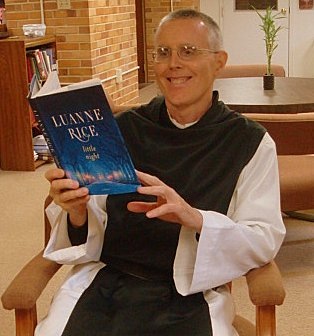 Here's a photo of my dear friend Brother Luke. He's reading LITTLE NIGHT, and he reads all my novels! We met many years ago when I was on book tour in the Louisville/Lexington KY area, visiting Joseph-Beth Booksellers and the late-great Hawley Cooke bookstores. (I miss Arlene, the store manager! Where are you now?)
Drawn to the Abbey of Gethsemani by the writings of Thomas Merton, I first met Luke many years and many books ago.
He is a brilliant musician and composer, an Irish poet with the best laugh in the world, and one of the greatest friends I can imagine having. He introduced me to his mother Alice and her sister Peggy, and when they came to New York City to visit we spent a day at the Metropolitan Museum of Art--two wonderful women. Luke and Alice came to Joseph Beth to see me speak, and afterwards we had dinner and talked and laughed.
We speak often, don't see each other enough, and I certainly consider him family. I dedicated SILVER BELLS to him.
And whenever I have a new book out, Luke heads straight to the shelves and is one of my first readers. I'm so grateful for his friendship and constant support. Love you, Luke...
Here's a photo of my dear friend Brother Luke. He's reading LITTLE NIGHT, and he reads all my novels! We met many years ago when I was on book tour in the Louisville/Lexington KY area, visiting Joseph-Beth Booksellers and the late-great Hawley Cooke bookstores. (I miss Arlene, the store manager! Where are you now?)
Drawn to the Abbey of Gethsemani by the writings of Thomas Merton, I first met Luke many years and many books ago.
He is a brilliant musician and composer, an Irish poet with the best laugh in the world, and one of the greatest friends I can imagine having. He introduced me to his mother Alice and her sister Peggy, and when they came to New York City to visit we spent a day at the Metropolitan Museum of Art--two wonderful women. Luke and Alice came to Joseph Beth to see me speak, and afterwards we had dinner and talked and laughed.
We speak often, don't see each other enough, and I certainly consider him family. I dedicated SILVER BELLS to him.
And whenever I have a new book out, Luke heads straight to the shelves and is one of my first readers. I'm so grateful for his friendship and constant support. Love you, Luke...


